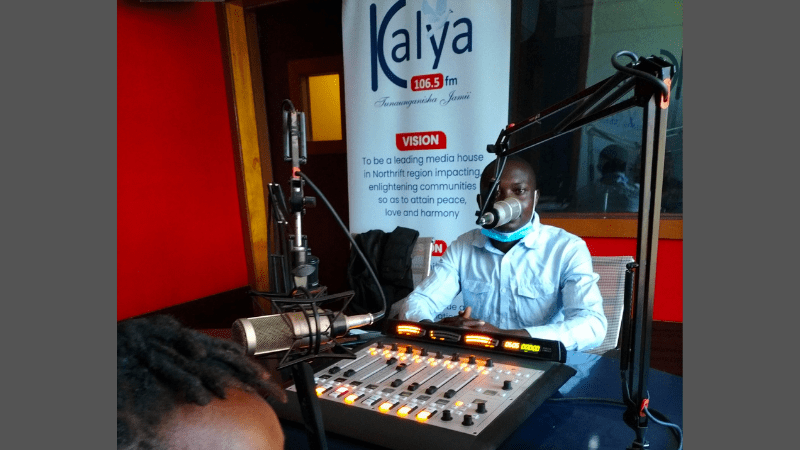
Last May, the Kingdom of Peace and Development (“KOPAD”) organization launched a Radio Broadcast to facilitate and promote peace and justice. This program was designed to reach the Northern Rift Region of Kenya; this region includes the six Kenyan counties of Turkana, West Pokot, Elgeyo Marakwet, Baringo, Samburu and Trans-Nzoia.
This region has been a crucible of conflict since precolonial times, and the people there have been marginalized by both the colonial and independent governments. It is populated by nomadic pastoralist communities (i.e., herdsman) among which fierce competition for scarce resources often leads to violent ethnic clashes. Traditionally, the pastoralist Nilotic communities in the North Rift believed that they had been bequeathed exclusive ownership of all livestock by their deity. As such, they did not see cattle rustling as a crime, but rather as an ordained duty to secure their livelihoods. Cattle rustling was carried out communally, using traditional weapons such as spears, bows and arrows. The arrival of guns and other small arms aggravated this previously customary conflict between communities. Today the conflict has expanded beyond cattle rustling to include competition for other resources, including county boundary contestations, and political supremacy battles.
Community Peace Keeping
After extensive research and the involvement of many community groups, we developed a radio broadcast that empowers communities to come together to participate in peace making and guarding the peace. The goal of this broadcast is to empower communities to resolve their conflicts peacefully without resorting to violence, and to nurture an environment that is conducive to sustainable peace and development. We recognize that the main responsibility to build and protect the peace in the region lies in the hands of the local communities and their leaders, and the program was designed to maximize this community participation.
The Radio Broadcast offered people in the North Rift the platform to voice their concerns and generate solutions to the issues that had the potential to trigger conflicts. The call-in program was particularly successful, as people called in or sent text messages in response to the theme under discussion. This interactive format allowed everyone to be heard, make a contribution to the topic for the day, and ask relevant questions. Music was also used to carry messages of peace, reconciliation and peaceful co-existence; this music created awareness and sensitized people to the issues of peace and reconciliation within and beyond our country borders.
The success of this ministry could have not been possible without the contribution of peace makers whom God called His Children (Matt 5:9). Indeed I do appreciate and acknowledge the tremendous support provided by International Ministries, Kingdom of Peace and Development, and other peace community members who warmly participated openly in the various Radio Broadcasts. I also wish to express my appreciation for the superb technical help from IM Africa Desk team led by Karen Smith and Deb Savage. They are truly instrumental with vast gifts for God’s ministry.
Last but not least, I want to express my gratitude to you, the reader of this journal!
You are chosen to know and participate in in the work of God globally, and together we lift up the name of our Prince of Peace for His tremendous work! It is my humble duty to wish you a Merry Christmas and Happy Prosperous New Year.
Your global servant,
Boaz Keibarak